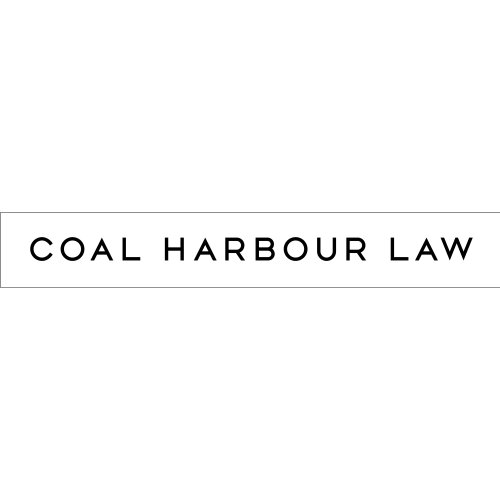Best Tax Increment Financing Lawyers in Vancouver
Share your needs with us, get contacted by law firms.
Free. Takes 2 min.
List of the best lawyers in Vancouver, Canada
About Tax Increment Financing Law in Vancouver, Canada
Tax Increment Financing (TIF) in Vancouver, Canada, is a fiscal tool used by municipalities to stimulate economic development in specific areas that require revitalization. TIF works by capturing the future tax benefits of increased property values to fund current improvements such as infrastructure, parks, or housing. While TIFs are more common in the United States, Canadian cities are recognizing their potential for urban development, including in Vancouver. However, implementing TIF in Canada involves navigating a patchwork of municipal and provincial regulations tailored to local conditions.
Why You May Need a Lawyer
Engaging a lawyer for Tax Increment Financing in Vancouver can be crucial in several situations:
- Complex Compliance Requirements: Navigating the various regulatory requirements and ensuring compliance with provincial and municipal laws can be daunting without legal assistance.
- Contractual Agreements: Drafting, reviewing, and negotiating contracts with developers, investors, and government bodies to ensure all parties adhere to agreed terms.
- Dispute Resolution: When disagreements arise, whether between developers and municipalities or among other stakeholders, a lawyer can facilitate negotiation and resolution.
- Financial Structuring: Legal guidance can help in structuring the financial aspects of the project to optimize the benefits of TIF while minimizing risks.
- Implementation Issues: Lawyers ensure that projects proceed smoothly within the scope of legal frameworks and zoning laws.
Local Laws Overview
Vancouver’s use of TIF is influenced by both local and provincial legislation:
- Community Charter and Local Government Act: These acts govern municipal financing and borrowing powers, providing the legislative framework for cities implementing financial strategies like TIF.
- Municipal Development Plans: Vancouver has various plans dictating the development priorities and objectives which must align with any proposed TIF projects.
- Zoning Regulations: Adherence to zoning laws is critical when undertaking development projects to ensure that projects are feasible and legally compliant.
- Public Engagement Requirements: Laws mandating community consultations ensure that developments meet public needs and address community concerns.
Frequently Asked Questions
What is Tax Increment Financing (TIF)?
TIF is a financial mechanism that uses future increases in property tax revenues generated by an improved area to finance current development projects.
How is TIF used in Vancouver?
While not as prevalent as in the United States, TIF can be used in Vancouver to fund public infrastructure projects aimed to support broader urban redevelopment goals.
Who benefits from TIF?
Both the city and developers can benefit from TIF. Cities see economic and social improvements, while developers may receive incentives or financial support for projects.
What projects can TIF finance?
Typically, TIF is used to finance public projects such as roads, bridges, sidewalks, parks, and utilities to enhance the designated redevelopment area.
Is TIF suitable for all areas in Vancouver?
TIF is generally applied to areas needing redevelopment or that show potential for increased property taxes following investment in infrastructure improvements.
Are there risks associated with TIF?
The primary risks include potential underperformance of projected tax increments, which can affect funding availability for ongoing and future projects.
How long does a TIF last?
TIF districts typically have a defined lifespan, usually ranging from 15 to 30 years, depending on the terms set at inception and municipal regulations.
Do TIF projects increase taxes for residents?
TIF does not raise property taxes directly; it re-invests increases in the existing tax base due to enhanced property values back into community projects.
How is public opinion considered in TIF projects?
Public consultation processes are often required to gather stakeholder input and ensure accountability and community alignment with TIF projects.
Where can I find current TIF projects in Vancouver?
Information on TIF projects can often be found on municipal websites or through public notices and municipal council meetings.
Additional Resources
For more information and assistance regarding TIF in Vancouver, consider reaching out to the following resources:
- City of Vancouver: Offers details on urban development policies and current revitalization projects.
- Ministry of Municipal Affairs and Housing: Provides guidance on regulatory frameworks affecting TIF.
- Urban Development Institute: A source of industry knowledge and networking for development professionals in the region.
- Law Society of British Columbia: Can help you find a legal professional specializing in TIF and related areas.
Next Steps
If you need legal assistance with Tax Increment Financing in Vancouver:
- Consult with a Specialized Lawyer: Seek advice from a lawyer who specializes in municipal law and financing mechanisms like TIF.
- Gather Relevant Documentation: Prepare any necessary documents related to your TIF project or concern to facilitate efficient consultation.
- Schedule a Consultation: Arrange a meeting with your lawyer to discuss potential legal strategies and understand your rights and responsibilities.
- Engage Stakeholders: Ensure all stakeholders, including developers, community members, and local authorities, are informed and involved as appropriate.
- Stay Informed: Keep abreast of any legislative changes to municipal financing or urban development that could impact your TIF initiatives.
Lawzana helps you find the best lawyers and law firms in Vancouver through a curated and pre-screened list of qualified legal professionals. Our platform offers rankings and detailed profiles of attorneys and law firms, allowing you to compare based on practice areas, including Tax Increment Financing, experience, and client feedback.
Each profile includes a description of the firm's areas of practice, client reviews, team members and partners, year of establishment, spoken languages, office locations, contact information, social media presence, and any published articles or resources. Most firms on our platform speak English and are experienced in both local and international legal matters.
Get a quote from top-rated law firms in Vancouver, Canada — quickly, securely, and without unnecessary hassle.
Disclaimer:
The information provided on this page is for general informational purposes only and does not constitute legal advice. While we strive to ensure the accuracy and relevance of the content, legal information may change over time, and interpretations of the law can vary. You should always consult with a qualified legal professional for advice specific to your situation.
We disclaim all liability for actions taken or not taken based on the content of this page. If you believe any information is incorrect or outdated, please contact us, and we will review and update it where appropriate.













